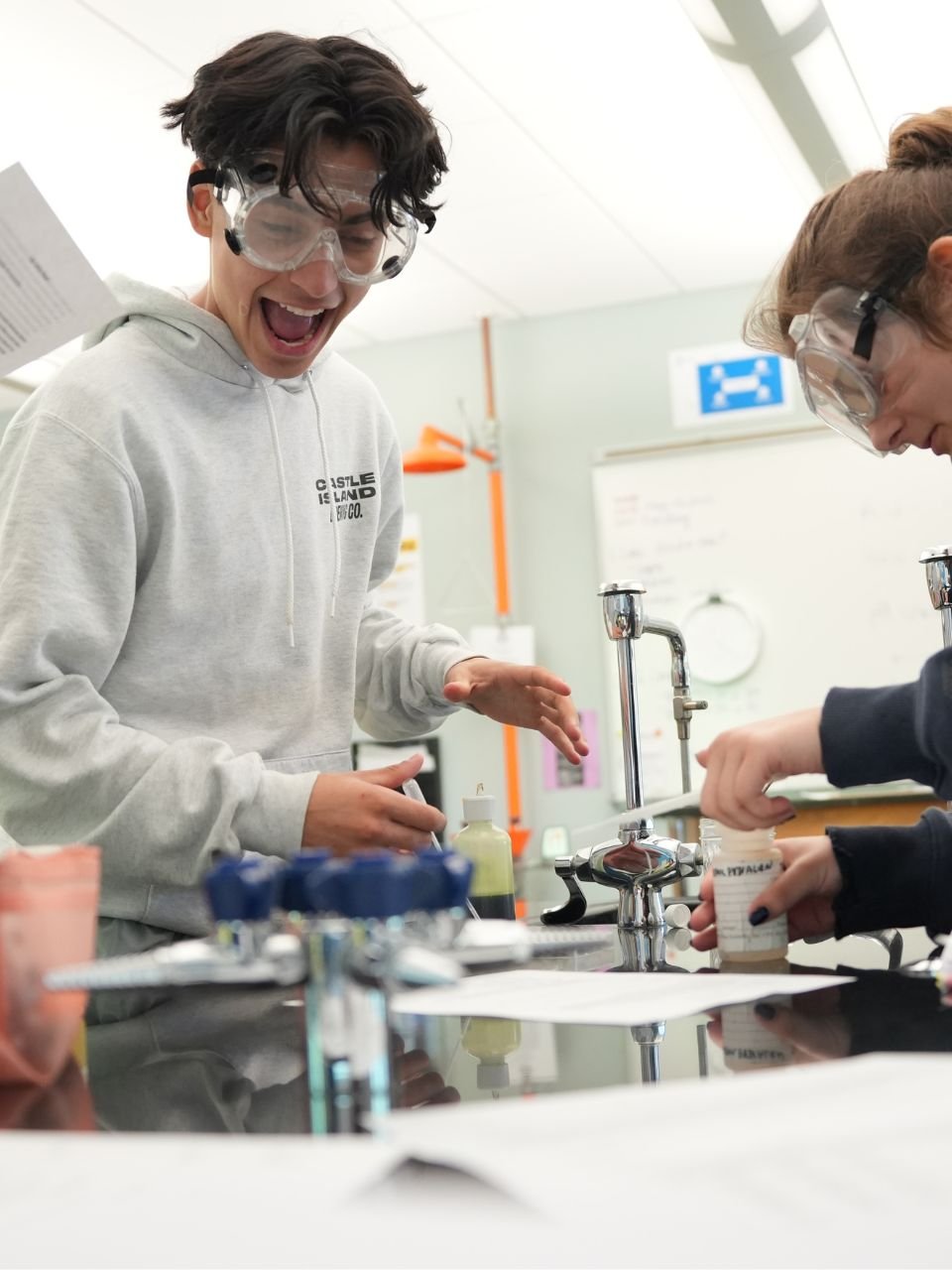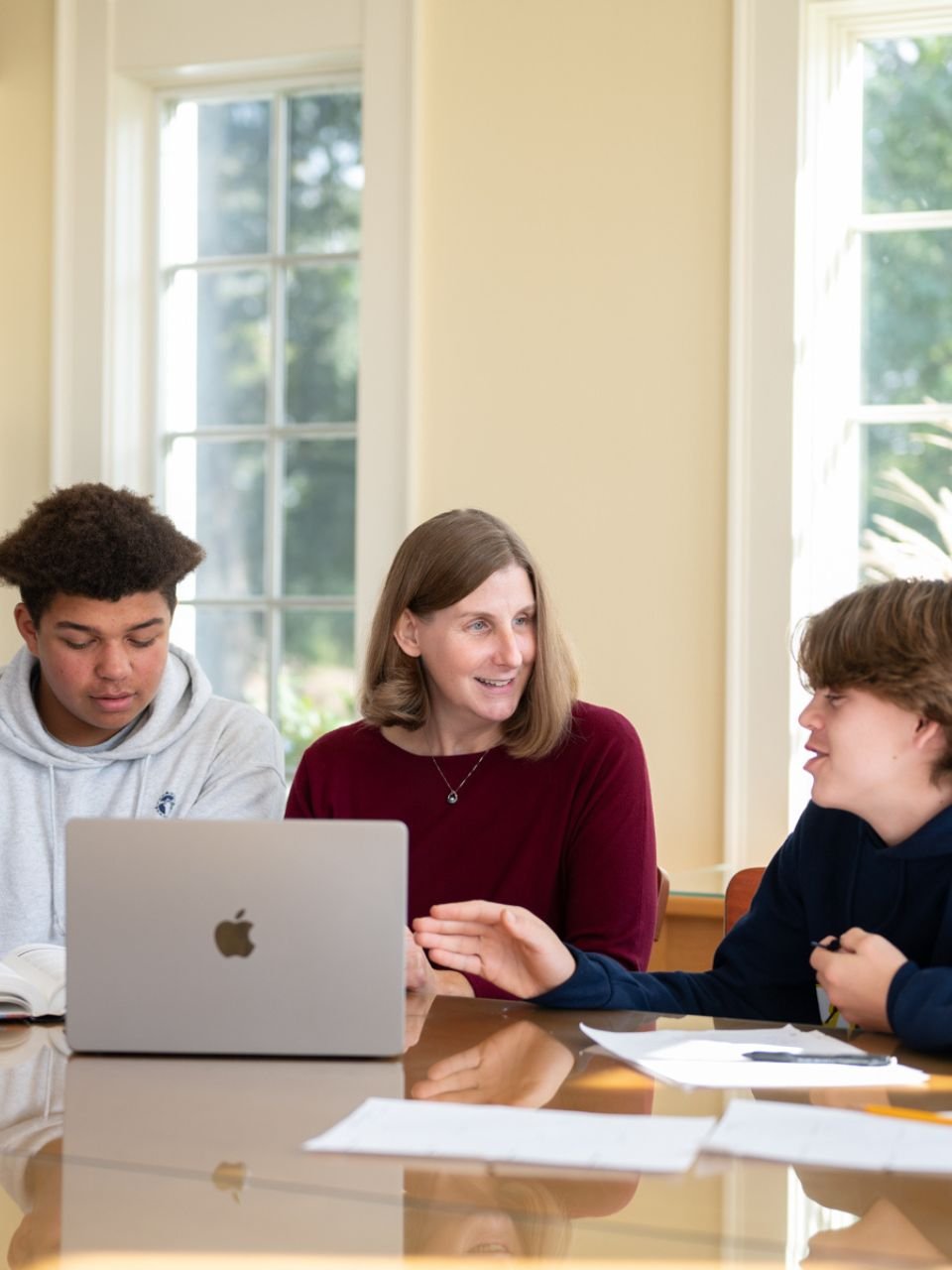- Our School
- Our Advantage
- Admission
- Elementary•Middle School
- High School
- Summer
- Giving
- Parent Resources
- For Educators
- Alumni
« Back
Helping Your Child Build Executive Function Skills for School Success
August 6th, 2025

If your child struggles with time management, organization, or initiating tasks, they’re not alone. Many students find executive function (EF) challenges make school (and other activities) overwhelming, but the good news is that these skills can be taught and strengthened with practice. At Landmark School, faculty and staff help students build their Executive Function toolbox, which stays with students through school and beyond.
Study Skills are the organization of time, materials, and information. In the post below, we break down executive function and the three topics: time, materials, and information. I hope these tips will help keep your child organized at school!
What is Executive Function?
Executive function (EF) is the brain’s management system. It helps students plan, stay organized, regulate emotions, and complete tasks. When a student’s executive function skills are weak, school demands can feel unmanageable. That’s where study strategies come in.
Here are some key areas where students can build EF skills—and how you as parents can help support them from home:
Time Management
Teach students to estimate how long tasks will take—and compare that to reality. Encourage them to start with the most important (or hardest) task first—“Eat the Frog.” We say that the hardest part of your day is eating the frog. Get it out of the way! Use calendars to break large assignments into smaller, manageable steps. This is something your child may need explicit instruction in, a syllabus is an example of this.
Using an Assignment Notebook Effectively
Review your child’s assignment notebook together on Sundays—check what’s done and preview the week ahead. This will help alleviate stress and give you a big picture of what the week will look like. Encourage writing down homework after every class, even if it’s “None.” At night, check the agenda, pack up materials, and plan for the next day.
Organizing Paper Materials
Try a 3-binder system: one for daily work, one for storing old papers, and a digital folder for key reference materials. This will eliminate clutter and loose papers that inevitably end up at the bottom of your child’s backpack. Help them keep their digital files and inbox clean and labeled clearly. It is so important to check their email and delete emails that they don’t need!
Active vs. Passive Learning Strategies
Passive reading doesn’t stick. I often define passive learning as if you are watching a movie, you are passively letting the information go by. If you are being an active learner in the classroom, you are engaged, taking notes, and asking questions about the topic at hand. Some examples of active reading strategies include highlighting, note-taking (margin notes, two-column), creating flashcards, and developing diagrams. Study techniques like "brain dumps" or creating a practice quiz can boost understanding and confidence. If students create a practice quiz, have them answer their questions!
Writing and Reading Skills
Break writing into steps: Plan, Organize, Write, Edit, Revise. This is the five-step writing process we use at Landmark. When reading, help them focus on finding the topic, main idea, and supporting details. Your topic is 1-2 words that identify what the paragraph is about. The main idea is the most important piece of the paragraph. It is important to note that the main idea should be a complete thought or sentence! Teach paraphrasing to help with comprehension and avoid plagiarism. Paraphrasing is putting the text in your own words.
Final Tip
Create a consistent, quiet, distraction-free workspace. A reliable routine and clear expectations go a long way in helping EF skills become habits. With your support and the right tools, students can build the executive function skills they need to feel more confident and capable at school.
About the Author
Rachel Cassola is an educator from Beverly, MA, currently teaching in the Study Skills Department at Landmark High School. Over the years, she has held a variety of roles at Landmark, including teaching Study Skills, American Sign Language, and one-on-one Language Arts tutorials. She has also served as an Academic Advisor and directed the Skills+ summer program. In the fall of 2025, she begins a new role as a guidance counselor. Rachel is passionate about the Landmark community and deeply values the meaningful work she gets to do each day.

Posted in the category Learning.























